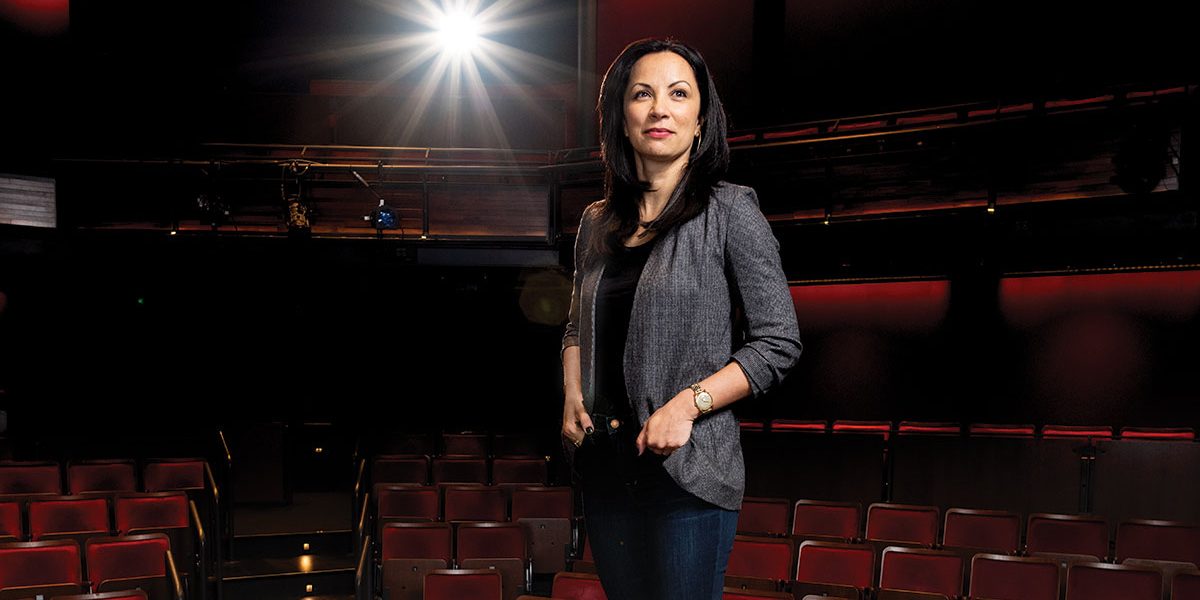Arts & Culture
Cameo: Stephanie Ybarra
The new artistic director at Baltimore Center Stage shares her vision for the theater.
You recently started as the artistic director of Baltimore Center Stage after spending seven years at The Public Theater in New York. What has it been like to transition from New York City’s theater scene to Baltimore’s scene?
New York is crawling—just crawling—with theaters, ensembles, and collectives of all shapes and sizes. It’s like a proliferation of them. It’s amazing, and it’s a lot to sift through. To me, Baltimore feels like a much more intimate and focused community of art makers, and that is really exciting. In New York, you can’t even keep track.
You’ve shown interest in sociopolitical shows and the relationship between theater and community. How, in your opinion, do they connect?
The intersection between theater and social justice, civic engagement, and community engagement really calcified for me when I went to a training a few years ago called Facilitation for Social Justice at the Interaction Institute for Social Change. I was the only arts and culture worker inside a room full of healthcare workers, educators, and social service providers. I thought to myself, ‘I might be in the wrong room.’
But a big chunk of the curriculum was spent breaking down the importance of narrative inside of social justice work. A light bulb went off in my head: stories! Our society is fueled by stories and the most compelling will change people’s hearts and minds for better or worse. They’ll influence entire communities of people; they’ll influences policies and laws.
What upcoming programming are you excited about at Center Stage?
[Former artistic director] Kwame Kwei-Armah and [executive director] Michael Ross worked to put this season together. This spring, Fun Home is a successful mainstream musical that puts the LGBTQ community at the center of its narrative, which feels revelatory. Indecent does the same thing from a completely different point of view, and so does How to Catch Creation.
Those are all subverting the dominant narrative in different ways. You can expect more of that as I am planning the 2019-20 season, and I am standing squarely on the shoulders of Center Stage’s rich legacy of inviting masterful storytellers to start to subvert and challenge who’s telling what story.
What is your vision for the future of Center Stage?
It goes back to the idea of community engagement. I’m really hopeful that the Center Stage building will become even more central to the civic life of Baltimore City and the surrounding areas. I’m equally excited to get out of the building— for our activities and programs to live just as fully outside of the walls of Center Stage.
